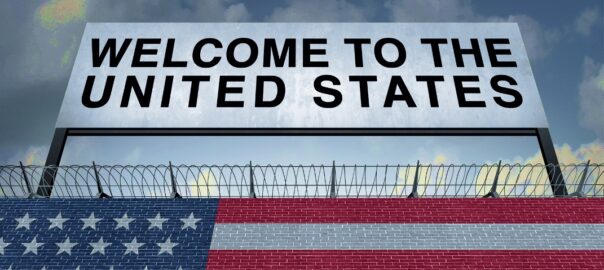
Hypocrisy is an ugly trait. It is one thing to fall short of one’s ideals and humbly aim to do better; it is quite another to profess virtue while willfully doing the opposite. It is not hypocritical to fail at times, if there is repentance and resolve to improve. It is hypocritical to present oneself as a paragon of compassion and then recoil when called upon to act in accordance with one’s ideals.
Political hypocrisy is on full display as hundreds of migrants are bussed or flown to sanctuary locations. None of the leaders of sanctuary cities complained when these folks were transported under cover of night to conservative suburbs or rural locales. But the moment a few dozen folks arrive in Martha’s Vineyard, suddenly such actions are now “inhuman” “Illegal” and even “akin to the Holocaust.”
Open borders serve no nation well. Neither does xenophobia. America has a wildly contradictory history of immigration law and practice and current systems are in need of reform. Before offering a way forward, balance is needed as we critique the current crises. Some Democratic leaders want a flood of people dependent on state help and they offer rapid citizenship so migrants will vote for their benefactors. Republicans have been unfairly portrayed as White Nationalists for simply wanting order and security at the border. But many Republicans are secretly happy with an endless supply of cheap labor.
How do we make progress? We must start with ending the “either/or” thinking that poisons reasonable policymaking. We can be hospitable and secure, creating pathways for citizenship and residency that welcome hard-working people from all nations. A secure border matters. The wall must be finished and many hospitality centers constructed on both sides of the border with Mexico. Criminals must be screened out and current undocumented felons must be deported. DREAMers deserve a pathway to citizenship while we eliminate incentives for anchor babies and the tragic separation of families.
Legal immigration is a mess. It is cumbersome and expensive and we can do better. Instead of reactive, symbolic actions (open borders, shipping migrants, etc.), Let’s gather people from all sides of the issue, keep the cameras outside (I know, that is impossible!), and forge real policy. For those in the USA illegally, offer a streamlined pathway to normalization with real accountability. ONLY citizens can vote. Apart from basic food, clothing, and temporary shelter, government benefits require registration and screening. Reform the whole system and while this is taking place, take the monies designated to the IRS increases and apply them to border security and compassionate care.
There is no place for racism and xenophobia in our policies. And there is a need for secure borders and screening for criminality and diseases (which can then be treated). Once our agitation propaganda is replaced by compassion and courage, there is hope for our nation and for millions we should welcome to our land.




